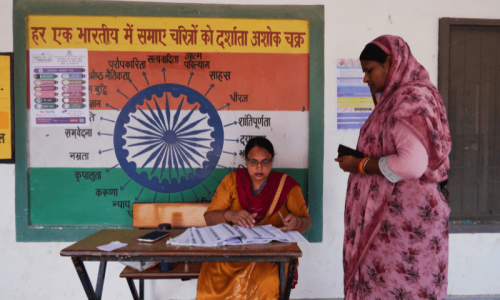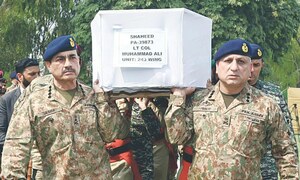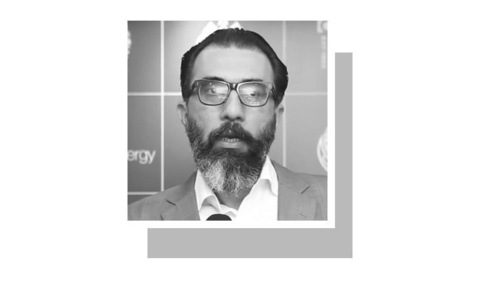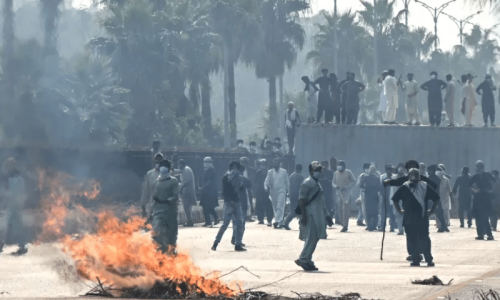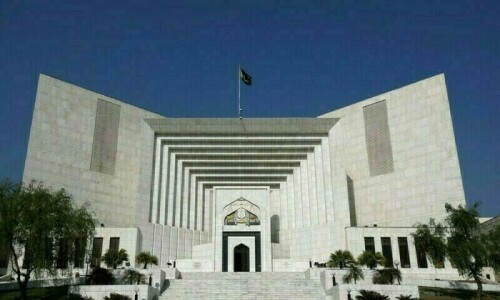THE access to sustainable and quality healthcare is not conditional on the health insurance card, argues the Sindh government led by the Pakistan Peoples’ Party. Access to health services, including medically advanced treatments, in underserved regions and among poor population segments, has improved significantly under the provincial government’s watch, it asserts.
The provincial government is adamant it has already covered some distance on the road to universal healthcare and does not need a public health insurance scheme. The leadership believes the health card system, introduced by the federal, Khyber Pakhtunkhwa and Punjab governments, might weaken the already depleted public health infrastructure in the country as the scheme shifts focus and diverts health budget towards the private health facilities at the expense of public health mechanism.
Sindh Minister for Health and Population Welfare Dr Azra Fazal Pechuho defended her party’s current position. Talking to Dawn, she said: “Sindh is already offering universal healthcare in the province even at the tertiary level. Treatments like cyber-knife, gamma-knife, liver transplants, bone marrow transplants, are offered for free. The health insurance would not be able to pay for the treatment of chronic and terminal illnesses, such as dialysis and cancer care, both of which are expensive modalities that an insurance cap of Rs1 million would not cover. We in Sindh are accommodating bills much higher than Rs1m on a needs basis. There are instances where patients are being sent abroad if their treatment requires so.
While the provincial government seems to be talking sense in terms of its stance related to the public health insurance scheme, the fact that the idea was initially floated in 2012 by the PPP leadership suggests otherwise
“Besides, the insurance premium payment is docked from the provincial health budget. This puts a strain on the budget allocation for government hospitals and health systems and leads to inadequate, insufficient health cover.”
She said privatising health will create more problems than it might solve, as the transparency of the system will be compromised.
Read: Universal health coverage — Where does Pakistan stand?
The State Life Insurance Corporation (SLIC), which has partnered with the federal as well as KP and Punjab governments in the management of public health insurance schemes, was convinced of the effectiveness of health card schemes and was confused over the stiff opposition from the PPP-led Sindh government.
“The health insurance scheme was launched by former prime minister Nawaz Sharif on a smaller scale in 2015 and was re-launched by the PTI in the federal domain and two provinces ruled by them in 2020 and 2021, but the idea was initially floated in 2012 by the PPP government under Asif Ali Zardari.
“Including the SLIC in the public health matrix in Pakistan was also the PPP’s idea. Prior to 2012, SLIC operations were limited to life coverage only. It was Shahid Aziz Siddiqui, then SLIC head, who saw the scope and started building the capacity of the organisation for health insurance,” a senior SLIC official informed Dawn.
“The first pilot project in collaboration with SLIC was launched in Faisalabad using the database of PPP’s flagship Benazir Income Support Programme to identify the targeted 0.4 million beneficiaries earning under $2 a day to be covered by Wasela-e-Sehat programme for three years. It was successfully completed, and enriched the health insurance experience to improve the flaws before applying it on a larger scale. It offered Rs25,000 per family annually for in-patients at the empanelled eight hospitals.
“Impressed with the success in 2015, the Micro Health Scheme, with 90 per cent German funding, was launched in Malakand, Mardan, Kohat and Chitral districts of KP for five years where SLIC was picked to collaborate on its technical strength. It targeted providing health cover to 0.7m people earning less than $1 a day. The programme was recently extended for another five years.
The PM National Health Programme with similar features was launched in 2015 by the Nawaz Sharif government in 34 districts across the country, targeting 15m people and enhancing the coverage to Rs50,000. The PTI government re-launched it with its brand recently. In Balochistan, work is in progress and the health insurance scheme will be launched in 2022,” SLIC Zonal Head Hafeez Uddin told Dawn.
Some senior officers in the Sindh Health Department said they had persistently been engaging with SLIC and relevant federal officials for better insight and to assess possibilities. “It is incorrect to assume that we are opposing the health insurance scheme for the sake of opposition. The fact is that it is our considered opinion that it will hurt the public trust in the government as the defender of basic human rights and the provider of social amenities,” said Parliamentary Health Secretary in Sindh Assembly Qasim Siraj Soomro.
“We must resist elements, ideas and political parties that project the private sector as the world saviour. Businesses by their very nature are profit-seeking entities. It is delusional to trust them with social causes,” said another leader in the provincial hierarchy.
“The commercialisation of basic rights clashes with the PPP’s ideology. It is the duty of the state to provide health coverage to its people. We take full responsibility for defending and promoting the rights of the people that include free access to healthcare for everyone,” he added though he was not able to explain why the global monitors rank Sindh behind Punjab and KP in terms of health indicators.
A doctor who travels in Sindh extensively believes the depiction of the public health situation in Sindh is flawed. “I wonder who is feeding media with horrific mother-and-child images from Thar. My work takes me to the region every few weeks. Over the past decade the situation has improved visibly,” said Dr Nuzhat Parveen, who takes care of health and accident insurance claims under the Sehat Sahulat Programme. She showed happy and healthy pictures of newborns with visibly elated mothers in Thar to prove her point.
She was all praise for the National Institute of Cardiovascular Diseases (NICVD) and the mobile phone service it offers. “We don’t get as many claims against cardiac treatment as it has already been taken care of by the available facilities.”
Zulfiqar Ali Shah, the Sindh Health Secretary, shared top health facilities the government takes pride in: Shaheed Mohtarma Benazir Bhutto Trauma Centre, Karachi, Surgical Complex, Jinnah Hospital, Karachi, Sindh Infectious Disease Hospital, Karachi, NICVD in Sukkur, Larkana,
Hyderabad, Mother and Child Hospital Nawabshah, Benazir Institute of Urology and Transplant Nawabshah (nearing completion), Sukkur Children Hospital (nearing completion), North Karachi Children Hospital (a JICA project), Sehwan Institute of Health Sciences, Jacobabad Institute of Medical Sciences, Gambat Institute of Medical Sciences, SIUT in Karachi and Sukkur, Sindh Ambulance Service, Karachi, Sindh People’s Ambulance and Health Services at SITE and in Thatta and Sujawal, and the Sindh forensic (DNA) Science Agency.
Published in Dawn, The Business and Finance Weekly, December 27th, 2021



















